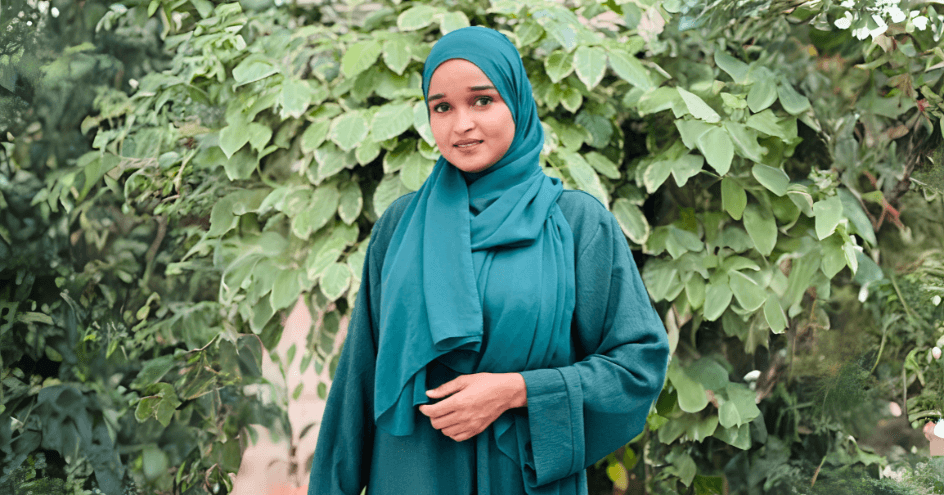Farhia Mohamud
January 4, 2024
Reflections From Our Team
Farhia Mohamud
January 4, 2024

I started working at Somali Public Agenda (SPA) exactly three years ago today on 4 January 2021. It has been among the most wonderful things that has ever happened to me. Then, I was a fresh university graduate, and SPA was a small growing organization with high ambition and a small team. Everyone at SPA was playing multiple roles. I started working as a researcher and human resources officer. In the beginning, I spent most of my time in the HR department, and I could not get the opportunity to contribute to the research projects that I had a burning passion for. Later, as the organization grew steadily, I transitioned to the research department, became a researcher, and handed over the HR responsibility. I started to actively work on research projects from then onwards.
In this blog post, I reflect on my experiences as a researcher, particularly the experiences I gained during my fieldwork and direct engagement with research participants. To this day, I traveled to several Federal Member States and sat down with and interviewed many Somali people for different research projects. The research and analytical papers I authored, co-authored, or participated in the data collection phase allowed me to interact with these people. These included studies on different research areas such as durable solutions, safety and security, data sharing, governance, peace and reconciliation, transitional justice, livelihood, state formation, and marginalized and minority groups.
The similarities between informants
Everywhere I went, though the accents and the contexts were different, the people I spoke with were similar in many ways. They were similar in having big hearts and welcoming hands. They were similar in treating me like their daughter. They were similar in venting their problems to me but also be grateful that I had listened to them. They were similar in being generous and offering food, tours, and protection. They were exhausted yet determined. They were hopeful despite barriers. They all faced governance challenges and were striving for better lives at all levels: socially, economically, and politically.
My feelings
Whenever I sat down with research participants to listen to their stories, I had conflicting feelings. There was immense gratitude that these individuals, despite enduring such difficulties, would be able to speak with us to support our research. I also wrestled with my own sense of helplessness against the magnitude of barriers they articulated.
Sitting with them and listening to their stories and life experiences left me with a feeling of helplessness. Most acutely, I experienced an overwhelming empathy and sadness, fighting back tears as I witnessed a Somali mother who broke down in the middle of our interview. This was the hardest moment in my research career. I also met with helpless fathers and a struggling youth. Yet, Somali women and girls are in particularly dire need of help. Women and girls are even more susceptible to a lawless and poor governance ecosystem.
A researcher in my position must walk that difficult line between empathy and objectivity. While connecting authentically with participants and communities is vital, I must filter their narratives ethically through an analytical lens. By transparently disclosing my situated perspective in this process, I have to produce insights that serve to inform policies that can relieve real suffering on the scale I’ve personally encountered. My goal is not to erase my emotions but to channel them into bettering lives for those courageous enough to have shared their stories with me.
Working with SPA and interviewing informants, facilitating focus group discussions, and participating in forums also gave me an invaluable network. I thank everyone who volunteered to participate in our research activities and everyone who facilitated access.
My take away
As I filled notebook after notebook with testaments to the Somali spirit’s resiliency in and outside Mogadishu, the real takeaway for me has been this: good governance is the fertile soil where people’s hopes can take root. No statistic or written report can convince a policy maker like the face of a weary mother thriving for a safer and better life for her child. This is the human perspective that politicians have neglected for too long and should be concerned about.
Farhia Mohamud is a researcher at Somali Public Agenda.
Somali Public Agenda is a non-profit public policy and administration research organization based in Mogadishu. Its aim is to advance understanding and improvement of public administration and public services in Somalia through evidence-based research and analysis.
Stay updated on governance and public services in Somalia!
I am really proud of you. Farhia, Just go ahead
Masha Allah we’ll articulated piece Thanks sis Farhia for sharing your experience and a round of applause 👏 to SPA team for their commitment and hard work to challenge the status quo